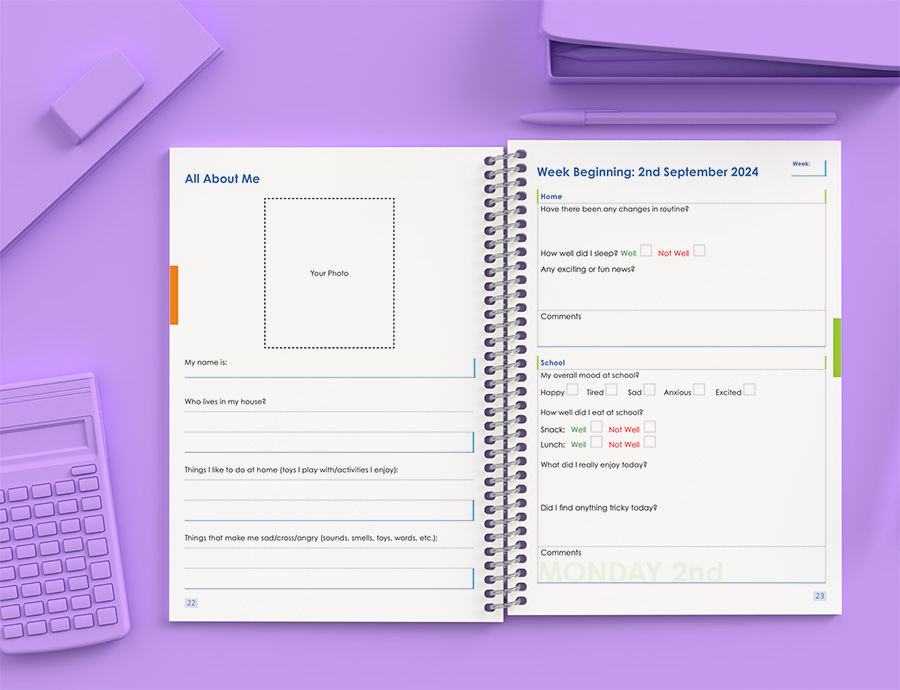Special Educational Needs (SEN) schools play a crucial role in providing tailored education to children who require additional support due to physical, cognitive, emotional, or social challenges. Supporting children in a SEN school is a multifaceted endeavour that involves educators, parents, and the community working together to create an environment where every child can thrive.
Understanding the unique needs and potential of each child in a SEN school is necessary to fostering an inclusive and effective learning environment. Unlike mainstream schools, a SEN school is equipped with specialised resources and trained professionals who can offer personalised attention and support. It is designed not only to accommodate the needs of children with disabilities but also to actively engage them in learning experiences that cater to their strengths and help them overcome their challenges.
The HM Government Green Paper review on SEND was recently published and highlighted some serious issues across the system. The government has acknowledged that overall, the experience and outcomes of children with SEN in schools are poor. There is tension within families of children and young people with SEND, caused by working with a complicated and often unhelpful system.
This reinforces the vital role of SEN schools. Beyond being places of learning, they provide environments where children can progress at their own pace, develop essential life skills, and build self-confidence.

Table of Contents
Understanding Special Educational Needs
Special Educational Needs encompass a wide range of conditions that may affect a child’s ability to learn and thrive within a traditional educational setting. These needs can be categorised into several areas, including:
- Cognitive and Learning Disabilities: Such as dyslexia, dyscalculia, or specific learning disabilities.
- Physical Disabilities: Including mobility issues or sensory impairments.
- Communication and Language Disorders: Such as speech and language delays or disorders.
- Behavioural and Emotional Difficulties: Including conditions like ADHD or emotional disturbances.
Each child with SEN requires a personalised approach to education and support, tailored to their unique strengths and challenges. SEN schools are designed to cater to these diverse needs, offering specialised teaching methods and resources that foster growth and development.
The Role of a SEN School
A SEN school serves as a safe and nurturing environment where children receive not only academic education but also comprehensive support to enhance their overall well-being. These schools are dedicated to fostering an inclusive atmosphere that recognizes and values the unique abilities and challenges of each student. They provide a specialised curriculum that is meticulously designed to adapt to meet the individual needs of students, offering differentiated learning experiences that accommodate various learning styles and paces.
In addition to academic instruction, a SEN school focuses on developing essential life skills, promoting social integration, and enhancing emotional and psychological well-being. The teaching staff, often trained in special education techniques, work closely with therapists, counselors, and other specialists to ensure a holistic approach to education. This collaborative effort aims to support students in building confidence, enhancing communication skills, and fostering independence.
Moreover, a SEN school often employs innovative teaching strategies and assistive technologies to create an engaging and supportive learning environment. These resources are tailored to help students overcome specific barriers to learning, ensuring that every child has the opportunity to thrive academically and personally. Through a combination of personalised attention, supportive resources, and a strong sense of community, a SEN school plays a crucial role in empowering students to achieve their full potential and lead fulfilling lives.
Challenges in Supporting Children in SEN Schools
While SEN schools are dedicated to providing exceptional support, they also face several challenges:
- Resource Allocation: Adequate funding and resources are essential to meet the diverse needs of students effectively. SEN schools often require specialised equipment, assistive technology, and additional staffing.
- Teacher Training and Retention: Continuous professional development is crucial for educators in SEN schools to stay updated on best practices and interventions. Retaining qualified staff is also a challenge due to the demanding nature of the work.
- Parental Engagement: Building partnerships with parents or guardians is vital for a child’s success in a SEN school. Effective communication and collaboration between home and school can enhance support strategies and reinforce learning.
- Transition Planning: Moving from a SEN school to higher education or employment requires careful planning and support to ensure a smooth transition and continuity of support.
Addressing these challenges requires ongoing commitment and collaboration to ensure that SEN schools can continue to provide the highest quality of care and education to their students with special educational needs.
How to support students with SEN in schools?
It’s clear that children and young people with SEND, along with their parents and carers, need more support. mplementing effective changes to meet these needs will require a significant amount of time and effort. Given that many schools currently cater to students with SEND, it is essential to explore and utilise useful tools that can enhance their educational experience. Moreover, improving communication channels with parents and carers is crucial to ensuring that their insights and concerns are effectively addressed. By focusing on these tools and strategies, we can work towards creating more inclusive and supportive environments that facilitate the overall development and success of children with SEND.
Mencap states that all schools should use SEN Support to find and meet the needs of children with SEN in schools. They should all be able to meet the ‘reasonable’ special educational needs of most children with a learning disability. They have set out this following list of expectations:
- Assess: they must talk to a child’s parents or the young person themselves to work out what support might be needed.
- Plan: once a child or young person’s needs have been identified, staff must work together with them and their family to decide what outcomes they want the child or young person to achieve and what support should be put in place to help them achieve those outcomes.
- Do: the staff, supported by the special educational needs coordinator (SENCO) where relevant, should put this support into practice.
- Review: the support received by the child or young person should be reviewed by everyone involved to see if it is working. If it is, it might continue. If it is not working, or if the outcomes have been achieved, some of the arrangements might be changed.

How our SEN planners can help
At The School Planner Company, our bespoke SEN student planners are meticulously designed to provide essential support tailored to the unique requirements of students with SEN. These specialised planners are crafted with a deep understanding of the challenges faced by these students, aiming to enhance organisation, communication, and overall academic success.
Our customisation options are extensive, allowing schools to tailor each planner to meet specific requirements. From incorporating visual schedules and personalised checklists to adapting layouts that suit different learning styles, we empower schools to create planners that truly resonate with their students’ individual needs and preferences. Schools can choose layouts that promote effective organisation and time management, featuring dedicated sections for assignments, deadlines, and progress tracking. By tailoring these aspects, schools ensure that students with SEN have the tools they need to manage their workload confidently and independently.
Effective communication is fundamental in supporting SEN students, and our planners facilitate this through built-in tools such as communication logs and notes sections. These features encourage ongoing collaboration between students, parents, and educators, fostering a supportive network that enhances student engagement and progress monitoring. Moreover, our planners include additional resources and strategies aimed at promoting well-being and autonomy. Schools can integrate tips for managing stress, sensory sensitivities, and self-regulation techniques, equipping students with valuable skills to navigate both academic challenges and social interactions successfully.
By enabling schools to fully customise our SEN student planners, we empower educators to create tailored solutions that address the unique needs of their students. This commitment to personalisation ensures that every planner serves as a practical and supportive tool, promoting a positive and inclusive learning environment where all students can thrive.
Assessment within schools
Assessment is the cornerstone of effective support for children with SEN in schools. It’s not just about identifying the needs but also about understanding the nuances of each child’s learning style, strengths, and areas of challenge. In a diverse classroom, where the spectrum of needs can be vast, a standardised approach might not always yield the best results. Tailored assessments, which take into account the unique challenges and strengths of children with SEN, are crucial.
The planner pages designed for SEN in schools play a pivotal role in this tailored assessment approach. They are not just tools for recording observations but are dynamic platforms that capture the evolving needs of the child. As children grow and their learning environments change, their needs might shift. Continuous assessment ensures that these shifts are captured in real-time, allowing for timely interventions.
Moreover, in many educational settings, a child might interact with multiple educators – from their primary teacher to special educators, to other support staff. Each of these interactions can offer a different perspective on the child’s needs and progress. The planner pages serve as a centralised space where all these observations can be collated. This ensures that every staff member is on the same page, quite literally, when it comes to supporting the child. It eliminates the risk of fragmented care, where one teacher’s observations might not align with another’s.
Furthermore, these planner pages can be shared with parents and guardians, fostering a collaborative approach to support. Parents can provide insights from the home environment, which, when combined with school observations, can paint a comprehensive picture of the child’s needs.
Conclusion
In conclusion, supporting children in SEN schools involves teamwork among educators, parents, and the community to create an environment where every child can thrive. These schools provide tailored education and comprehensive support, addressing a wide range of needs through specialised resources and innovative teaching methods.
Despite challenges like resource allocation and teacher training, SEN schools remain dedicated to fostering independence and academic success. By using tools like bespoke SEN student planners, schools can enhance communication and organisation, ensuring every child receives the support they need to flourish. SEN schools play a crucial role in empowering children with special educational needs to reach their full potential and lead fulfilling lives.
‘For further information and resources’
Schools, Colleges and FE | Council for Disabled Children
Best practice | SecEd (sec-ed.co.uk)
https://councilfordisabledchildren.org.uk
Unlock Better Support for SEN Students: Discover Customised SEN Planners Now
Enhance communication, foster understanding, and streamline assessments with our tailored planners. Dive into tools that bridge the gap between educators, parents, and children with SEN for a harmonious, inclusive education experience